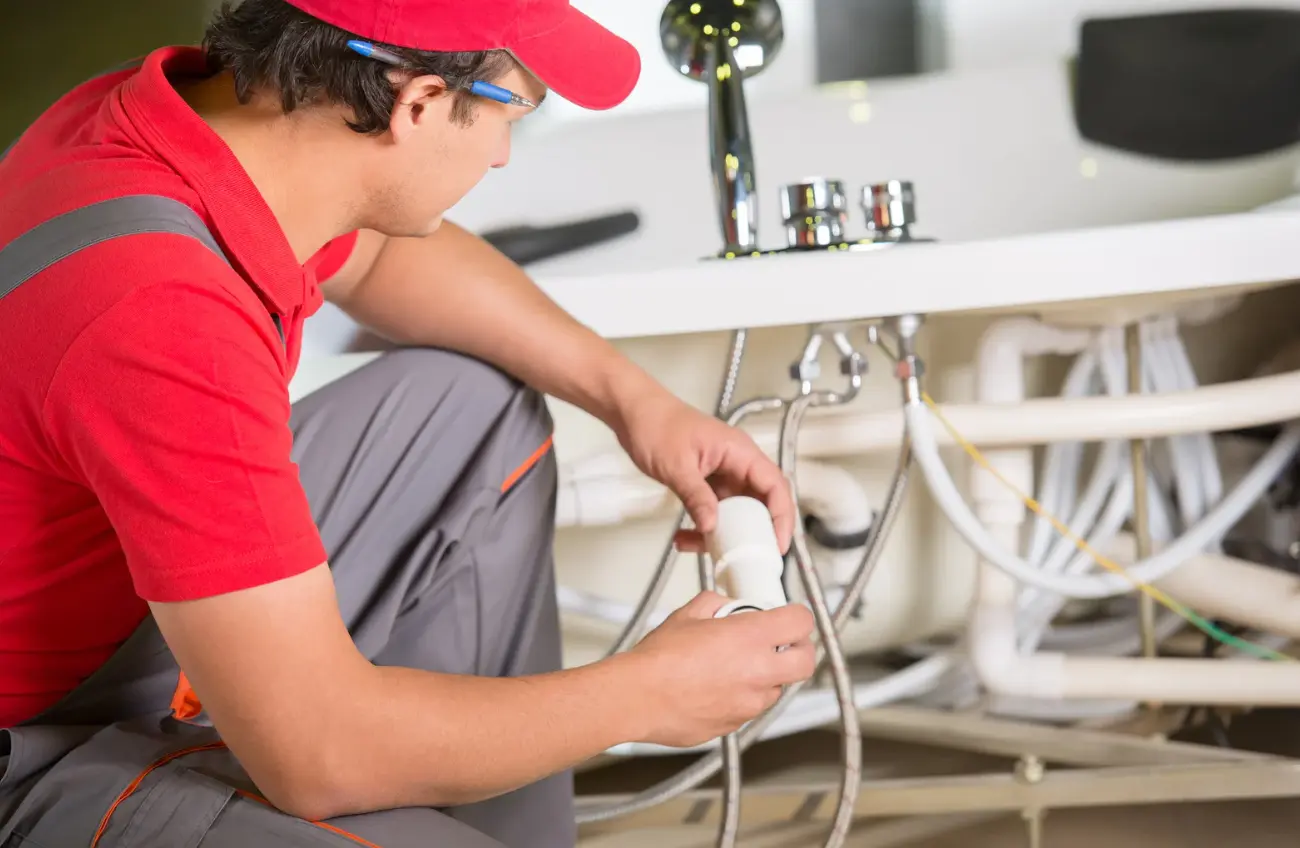
Is Buying a Plumbing Business a Good Investment?
An Overview Of The Plumbing Industry In The UK
The plumbing industry in the UK plays a crucial role in sustaining both residential and commercial properties. With the country’s population on the rise and a consistent demand for new housing and commercial spaces, the need for proficient plumbers is increasingly significant. The UK government’s substantial investments in infrastructure and housing projects further bolster this demand. The industry benefits from a continuous need for maintenance, repairs, and new installations, ensuring a steady stream of work for plumbing businesses. Additionally, the industry’s growth is fuelled by a heightened awareness of sustainability and water conservation, leading to a burgeoning market for eco-friendly plumbing solutions. These solutions offer businesses opportunities to innovate and diversify their services to meet modern demands. The advent of new technologies, such as smart home systems and IoT-enabled plumbing devices, is also revolutionising the industry, offering potential for enhanced efficiency and customer satisfaction. As urbanisation and population growth persist, the demand for plumbing services is expected to remain robust, presenting numerous opportunities for growth and development within the sector. The focus on sustainable and efficient plumbing systems will likely continue to shape the industry’s trajectory, highlighting the need for businesses to stay abreast of emerging trends and technologies.
The Benefits Of Buying an Existing Plumbing Business
Purchasing existing plumbing businesses for sale provides numerous advantages. Chief among these is the immediate access to an established customer base, facilitating swift revenue generation and fostering community relationships. An existing business often comes with a solid financial history, offering transparency regarding its performance and reducing the uncertainties typical of new ventures. This historical data allows for more precise financial planning and forecasting.
Additionally, acquiring a plumbing business means inheriting essential assets such as equipment, vehicles, and a skilled workforce, thus saving considerable time and expense on hiring and training new employees. Established supplier relationships are another significant benefit, often ensuring favourable terms and pricing for materials and services.
These businesses usually have operational systems and processes already in place, streamlining daily management and allowing for a smoother transition into ownership. The brand recognition and reputation built by the previous owner can also be advantageous, providing a platform for continued business growth.
Moreover, an existing business is likely to have ongoing contracts and service agreements, offering immediate income and a steady workflow. These pre-existing agreements can provide a level of financial stability, crucial during the initial phase of ownership.
Access to an experienced team can be invaluable, providing continuity and maintaining service quality during the transition period. Their industry knowledge and expertise can contribute to smoother operations and better customer service.
Overall, buying an established plumbing business can significantly reduce the risks and challenges associated with starting a new business, offering a head start with numerous operational and financial benefits.
The Different Types Of Plumbing Businesses For Sale
When exploring the purchase of a plumbing business, understanding the different types available is essential. Residential plumbing businesses concentrate on services for homeowners, including installations, repairs, and regular maintenance. These businesses frequently benefit from loyal repeat customers and positive word-of-mouth referrals. On the other hand, commercial plumbing businesses cater to office buildings, retail spaces, and other commercial properties. These enterprises often handle larger contracts and provide a broader array of services, such as plumbing for new constructions and extensive renovations.
There are also specialised plumbing businesses targeting niche markets, such as those focusing on eco-friendly or renewable energy systems, appealing to environmentally conscious customers. These businesses might offer innovative solutions like rainwater harvesting systems or solar water heaters. Additionally, some plumbing businesses specialise in particular services, such as emergency plumbing, which provides round-the-clock assistance and tends to attract a premium for urgent repairs.
Another category worth considering is franchise opportunities. Purchasing a franchise allows you to buy into a brand with established systems, marketing strategies, and support networks, potentially reducing the risk and effort involved in building a business from the ground up. Franchises often come with training programmes and operational guidance, making them a viable option for those new to the industry.
Each type of plumbing business presents its own set of advantages and challenges, and the optimal choice will depend on your interests, expertise, and long-term investment objectives.
The Future Of The Plumbing Industry In The UK
The plumbing industry in the UK is on the cusp of significant transformation, driven by several key trends and developments. A notable shift towards sustainable and energy-efficient plumbing solutions is anticipated to continue, with an increasing number of consumers prioritising eco-friendly options. This trend provides plumbing businesses with opportunities to diversify their service offerings and cater to the growing green market.
Technological advancements are poised to play a critical role in the industry’s future. The proliferation of smart home systems and IoT-enabled plumbing devices is expected to revolutionise service delivery, enhancing operational efficiency and customer satisfaction. These innovations can lead to smarter water management, predictive maintenance, and real-time monitoring, ultimately transforming how plumbing services are delivered and managed.
Urbanisation and population growth will persist as major drivers of demand within the industry. As cities expand and new housing developments emerge, the need for skilled plumbers will remain robust, ensuring a steady flow of projects in both residential and commercial sectors. This sustained demand underscores the importance of maintaining a well-trained workforce capable of meeting the evolving needs of the market.
However, the industry may encounter challenges, notably a potential shortage of skilled professionals. Addressing this issue will be crucial, with a focus on attracting and retaining talent through comprehensive training programmes and competitive employment packages. Investing in workforce development will be essential to ensure the industry can effectively meet future demands.
Additionally, regulatory changes and government policies related to environmental standards and building codes will influence the industry’s direction. Plumbing businesses will need to stay informed and compliant with these regulations, adapting their practices accordingly to ensure sustainability and efficiency.
Overall, the future of the plumbing industry in the UK is characterised by growth and innovation. By embracing sustainable practices, leveraging technological advancements, and addressing workforce challenges, plumbing businesses can position themselves for long-term success. Adapting to these emerging trends will be key to thriving in a dynamic and evolving market.

























